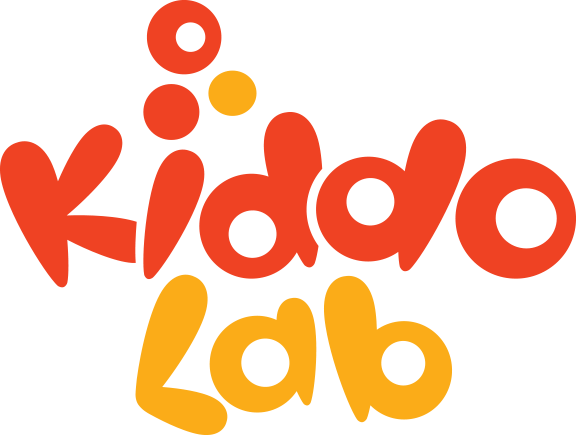Introduction to Sharing in Early Childhood
Sharing is a vital social skill that every child needs to learn. It's more than just a courtesy; it's a fundamental part of interacting with others and plays a crucial role in a child's development. In this comprehensive guide, we'll explore effective methods to teach your child the art of sharing, with a special focus on how Kiddolab’s educational toys can facilitate this process.
Understanding the Importance of Sharing
For toddlers, especially those 18 months and older, learning to share is an essential step in their social development. Sharing teaches empathy, cooperation, and fairness - qualities that are vital for lifelong success and relationships.
But why is it sometimes so challenging for children to share? We'll delve into the psychology behind sharing and provide practical tips to encourage this behavior.
The Role of Parents in Teaching Sharing
As a parent, you are your child’s first teacher. Your approach to teaching sharing can have a lasting impact. It’s about setting the right example and creating opportunities for your child to practice sharing. In this section, we will discuss strategies that parents can use to encourage their children to share, including positive reinforcement, leading by example, and the use of educational toys.
Kiddolab’s Educational Toys: A Tool for Sharing
Kiddolab, renowned for its innovative educational toys, offers a range of products that can significantly aid in teaching your child to share. These toys are designed not just for individual play but for group interactions, making them ideal for teaching sharing. From interactive playsets to cooperative games, Kiddolab’s toys provide a fun and effective way to introduce the concept of sharing to young children.
Strategies for Encouraging Sharing in Children
● Role-Playing and Scenario-Based Games with Kiddolab
● Setting Up Sharing Opportunities

Positive Reinforcement: Celebrating Sharing Moments
Positive reinforcement is a powerful tool in teaching children to share. Acknowledge and praise your child when they share, reinforcing this behavior as desirable. Share real-life examples where sharing led to positive outcomes. Also, Kiddolab’s educational toys, with their interactive features, provide an excellent platform for practicing sharing in a controlled and enjoyable environment.
Role-Playing and Scenario-Based Games with Kiddolab
Role-playing is an effective way to teach sharing. Use Kiddolab’s diverse range of toys to create scenarios where your child can practice sharing. For example, Kiddolab’s play kitchens or construction sets are perfect for group play, encouraging children to take turns and work together, thus fostering a sharing mindset.
Setting Up Sharing Opportunities
Create environments where your child has numerous opportunities to share. Arrange playdates or group activities where sharing is necessary. Kiddolab’s toys are designed for cooperative play, making them ideal for such settings. Their range of puzzles and board games requires players to share pieces and collaborate, providing practical sharing lessons in a fun way.
The Psychological Perspective of Sharing
● Understanding Child Development and Sharing● Overcoming the Challenges of Sharing
● Kiddolab’s Impact on Emotional Intelligence

Understanding Child Development and Sharing
Understanding the developmental stages of your child is key to teaching sharing. At different ages, children have varying capacities for empathy and understanding the concept of sharing. Kiddolab’s toys are designed with these developmental stages in mind, providing age-appropriate challenges that encourage sharing and cooperation.
Overcoming the Challenges of Sharing
Sharing can be challenging for children, often leading to frustration or conflict. Address these challenges by discussing the feelings involved in sharing and teaching conflict resolution. Kiddolab’s toys, like their interactive storybooks, can be tools for discussing these emotions and teaching effective ways to navigate them.
Kiddolab’s Impact on Emotional Intelligence
Emotional intelligence is crucial in learning to share. Kiddolab’s toys not only provide fun learning experiences but also help develop emotional intelligence. Toys that require turn-taking and cooperation, such as their board games or group playsets, are excellent for nurturing empathy and understanding in young children.
Enhancing Sharing Skills Through Play
● Learning Through Play: Kiddolab’s Approach● Group Activities and Shared Playtime
● The Role of Parents in Facilitating Sharing

Learning Through Play: Kiddolab’s Approach
Kiddolab’s educational toys are designed to promote learning through play, a method proven to be highly effective in teaching young children. By incorporating toys that encourage group interaction, children naturally learn the value of sharing. For instance, Kiddolab’s musical instruments set is perfect for group play, teaching children to take turns and enjoy shared experiences.
Group Activities and Shared Playtime
Organizing group activities where children can play together is essential in teaching sharing. Use Kiddolab’s toys during these sessions to encourage cooperative play. Their range of board games and interactive playsets are ideal for this purpose, as they require children to work together and share resources to achieve a common goal.
The Role of Parents in Facilitating Sharing
As a parent, your involvement in playtime is invaluable. By participating in games and activities using Kiddolab’s toys, you can directly model sharing behavior. Your engagement shows your child the importance of sharing and provides them with a clear example to follow.
Building a Foundation for Lifelong Sharing
● Sharing Beyond Childhood: Long-Term Benefits● Incorporating Kiddolab Toys in Daily Routines
● Celebrating Milestones in Sharing
Sharing Beyond Childhood: Long-Term Benefits
Teaching your child to share lays the foundation for many essential life skills, including empathy, teamwork, and social interaction. These skills are valuable beyond childhood, influencing relationships and success in various aspects of life. Through play with Kiddolab’s educational toys, children not only learn to share but also develop these critical life skills.
Incorporating Kiddolab Toys in Daily Routines
Integrating sharing lessons into daily routines can reinforce the behavior. With Kiddolab’s versatile toy range, you can create opportunities for your child to practice sharing in everyday situations. Whether it’s during a family game night or while playing with toys during downtime, these moments are perfect for reinforcing sharing habits.
Celebrating Milestones in Sharing
Recognize and celebrate your child’s progress in learning to share. This positive reinforcement encourages them to continue sharing and see it as a valued behavior. Celebrate these milestones with special play sessions using their favorite Kiddolab toys, reinforcing the connection between sharing and positive experiences.
Final Thoughts on Sharing and Kiddolab's Role
● Summarizing the Journey of Teaching Sharing● Kiddolab: A Partner in Your Child’s Development
● Moving Forward: Continuing the Sharing Journey

Summarizing the Journey of Teaching Sharing
Teaching a child to share is a journey filled with challenges, learning, and rewarding moments. Throughout this guide, we’ve explored various strategies, from positive reinforcement to role-playing, all aimed at nurturing this vital skill in your child. Sharing is more than a social nicety; it's a fundamental aspect of your child's social and emotional development.
Kiddolab: A Partner in Your Child’s Development
Kiddolab has been a recurring theme in this journey, offering a range of educational toys that are instrumental in teaching sharing. These toys are not just for entertainment; they are tools designed to enhance your child’s development. Each product from Kiddolab is crafted to encourage cooperative play, empathy, and the joy of sharing, making them invaluable in your child’s growth.
Moving Forward: Continuing the Sharing Journey
As your child grows, the lessons of sharing will continue to evolve. It’s a skill that requires practice, patience, and reinforcement. Continue to use Kiddolab’s educational toys as part of this ongoing process. Their range of toys can grow with your child, providing age-appropriate challenges and opportunities for learning.
Conclusion: The Lasting Impact of Sharing and Call to Action
● Sharing: A Gift that Keeps Giving● Choose Kiddolab for a Brighter Future
● Take the Next Step with Kiddolab
Sharing: A Gift that Keeps Giving
The lessons your child learns about sharing today will shape their interactions and relationships in the future. It’s a gift that keeps giving, extending far beyond the early years of childhood. By instilling these values now, you’re setting your child up for a future filled with meaningful relationships and collaborative success.
Choose Kiddolab for a Brighter Future
As you continue to guide your child in learning to share, remember that Kiddolab is here to support you every step of the way. Their educational toys are more than just playthings; they are companions in your child’s developmental journey, offering a fun, engaging way to learn life’s important lessons.
Take the Next Step with Kiddolab
We invite you to explore the world of Kiddolab and discover how their educational toys can make a difference in your child’s life.
Visit Kiddolab’s Amazon page today to find the perfect tools to aid in teaching your child the art of sharing.
Join the many families who have found joy and growth through Kiddolab’s innovative products.


